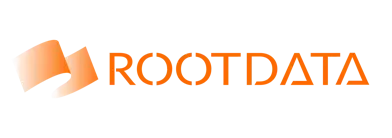Exclusive Interview with Aleo Foundation Executive Director: ZK Verification Time Has Significantly Decreased, "Real-Time Proof" is Gradually Becoming a Reality
9月 12, 2024 15:26:01


Author: Wendy, Foresight News
Guest: Alex Pruden, Executive Director of Aleo Network Foundation
As a cutting-edge technology expected to address the two major demands of Ethereum's scalability and privacy issues, zero-knowledge proofs (ZK) have garnered significant attention from investors. However, large-scale applications of this technology have yet to show signs of materializing.
In April of this year, Ethereum founder Vitalik proposed the goal of achieving ZK "real-time proofs" in Hong Kong, once again making zero-knowledge proofs a focal point of community interest. How long will it take for the goal of ZK "real-time proofs" to become a reality, and how far are we from the large-scale application of ZK?
The ZPrize competition, a technical benchmark in the field of zero-knowledge proofs, recently announced the results of its 2023 competition. On this occasion, Foresight News interviewed Alex Pruden, the Executive Director of the Aleo Network Foundation and organizer of ZPrize, to discuss the outcomes of this competition, several major development trends in the ZK field, and the highly anticipated launch date of the Aleo mainnet.
Alex Pruden served in the U.S. Army for nine years, during which he held positions as an infantry and special forces officer. Before joining Aleo, he was a partner at a16z, and after joining Aleo, he became, in some ways, the spokesperson for the ZPrize competition. In his view, maintaining open-source development at the forefront of zero-knowledge proofs is crucial, which is why ZPrize requires participating teams to open-source their algorithms. This is also an effective path for zero-knowledge proofs to move towards large-scale applications. Guided by the spirit of open-source, the ZK field can foster collaborative efforts, significantly accelerating the deployment of applications.

The following is the content of the interview.
Foresight News: ZPrize has been held twice so far. How does this edition differ from the first? What are the biggest achievements?
Alex Pruden: I think the biggest achievements of this edition are twofold: first, we achieved a real-world end-to-end application for the first time, specifically for signature verification in zero-knowledge proofs. Prior to this, there was no standard in this area. The second achievement is the significant progress made in proof generation in WASM (the runtime environment in browsers), achieving approximately a 100-fold speedup compared to the baseline. In the original baseline, a key part of the proof generation step took about two minutes, whereas with this year's ZPrize winning solutions, this process only takes 1 to 2 seconds. We have gone from minutes to seconds, which is truly incredible.
This achievement is significant because it allows these algorithms to run on consumer-grade client hardware rather than being limited to powerful cloud servers. I believe this opens up a whole new range of use cases for ZK technology.
Foresight News: Since ZPrize is a competition, the solutions often prioritize speed. From a practical engineering perspective, do you think these award-winning algorithms are fully deployable yet? Meanwhile, the community is also eager to know how far we are from large-scale applications of ZK. What do you think is the biggest bottleneck in this regard, and how should we break through it?
Alex Pruden: From a technical standpoint, thanks to efforts from the industry like ZPrize, we are very close to making this technology (referring to zero-knowledge proofs) practical. In my view, the biggest bottleneck for (the large-scale application of ZK) is that people have not yet come up with enough applications to utilize this technology. For me, or I think for the entire ecosystem, the most important thing is to help application developers understand what can be done with ZK. We need to educate developers about the possibilities of ZK technology and show them what they can create.
Some dreams that seemed unrealistic two years ago have now become a reality. As mentioned, the time required for certain computations has gone from two minutes to one second. This speed improvement will bring about a qualitative difference.
However, this improvement is still very fundamental. What we need are higher-level applications, such as identity verification. Currently, one identity verification application that excites us is called zPass. We need more applications like zPass to demonstrate the demand for ZK and build products on that foundation. For example, I want to prove my age, or I want to verify something, or I want to send money securely while also being able to perform KYC, and so on.
The emergence of these applications will further drive improvements in underlying cryptography, creating a virtuous cycle. Just like in traditional hardware development, chips and transistors are constantly miniaturizing. The smaller they become, the more powerful computers get, which allows for more capabilities, thus driving more demand, which in turn promotes further miniaturization. This virtuous cycle is exactly what we need to establish for ZK.
Foresight News: As I understand it, open-sourcing algorithms is also a requirement for ZPrize participants. In your opinion, why is open-source so important for the ZK community?
Alex Pruden: Open-source is very important because I firmly believe that an open ecosystem allows more people to contribute, leading to faster progress. In other tech fields, you often see closed-source technologies in patent portfolios that tend to have low usage rates or develop slowly because patent holders are protected and can commercialize them at will.
In my view, cryptocurrency and blockchain have generally demonstrated the value of open-source ecosystems. Take Ethereum as an example; it has evolved from a proof-of-work (POW) chain to a proof-of-stake (POS) chain, which is the result of the collective efforts of many people globally, including many breakthroughs. Zero-knowledge technology itself has made significant progress thanks to contributions from various open-source protocols like Zcash, Aztec, and Aleo.
Therefore, we set such requirements based on the idea that open-source software can help more people collaborate and ensure that there is a spirit of cooperation and collaboration within the ecosystem.
Foresight News: What about the demand for computing power? Do you think the demand for computing power from the ZK community will continue to grow?
Alex Pruden: I believe it will. Currently, the main sources of computing power demand are proof-of-work (POW) on traditional crypto networks and artificial intelligence (AI). At Aleo, we have a mining component for ZK. I think demand will rise as a result, which is actually our goal.
On the other hand, I also see great potential in applying ZK to AI. One major drawback of AI is that many people are concerned about their data being collected and used. Therefore, privacy-preserving technologies like ZK can become part of the solution. I believe that from a computational perspective, as AI demand grows, so will the demand for technologies like ZK.
Foresight News: In this cycle, what trends in the ZK field do you think are worth paying attention to? Is there anything you think is important but hasn't been sufficiently discussed?
Alex Pruden: In my view, the biggest trend in the ZK field right now is applications. People are starting to create more ZK applications, and while I think applications are a bottleneck for the large-scale use of ZK, the momentum in this area is currently very positive.
The second trend is using ZK to integrate different systems. There is a project called ZK Email, which originates from TLS Notary, both of which are projects of the Ethereum Foundation. These essentially use ZK to combine two different systems. I think this is a very interesting trend with great potential as an application.
Another major trend is ZK mining pools. Many people are now interested in proving pools. We can adopt many of the same structures from Bitcoin mining to have these pools generate proofs for real-world applications, making their work meaningful. Now, many companies, including Aleo, are considering providing proof generation services for various ZK virtual machines. This is an area that I find very exciting.
The fourth trend I want to mention is ZK ASIC. All implementations of ZPrize have been done on hardware like FPGAs, GPUs, or MacBooks, but I believe we are now seeing enough demand and interest in implementing ZK on ASICs, so I think the development of ZK ASICs is imminent, and I am very much looking forward to seeing it.
I think what should be discussed more but hasn't been sufficiently addressed is client-side proofs, meaning proving on consumer devices or mobile devices. In traditional fields outside of ZPrize and Aleo, most of the focus on ZK rollup acceleration has been on server-side implementations. This all relates to latency. I think it is equally important to consider situations where clients want to keep secrets and generate proofs about those secrets. I believe this is an area that many in the ZK field may implicitly deny the existence of client-side provers. If privacy is needed, it is achieved through server-side solutions like MPC.
In the coming years, there will be intense debates in the ZK field about whether proofs are needed on consumer electronics or mobile devices. Personally, I tend to believe they are needed, and I believe that such client-side proofs will enable many special applications, especially in personal identity verification. That is why I am so optimistic about this area and why I am so excited about the results of this year's ZPrize.
Foresight News: Speaking of Aleo, can you talk about your mainnet launch issue? It was originally planned for the first quarter but has now been postponed. Is there a new roadmap? Can you share a specific timeline?
Alex Pruden: We plan to launch the final version of the testnet next month.
Looking back, when we planned to launch in March, we felt that the technology had not been fully validated, and it would be safer to conduct a few more months of testing and validation. Now, we have completed most of it and will launch a new version of the testnet in the coming weeks. By then, we have some conditions that need to be met, which we have shared in calls with some core developers, such as client stability, validator stability, ensuring network activity, and so on. When these conditions are met, we will let the community decide whether to launch the mainnet.
I am very confident that we will launch the mainnet within this year.
Foresight News: Once the Aleo mainnet is launched, what kind of applications will have the demand or motivation to integrate with Aleo?
Alex Pruden: I believe the most valuable offering from Aleo is programmable and permissionless privacy.
In the short term, the most important killer use case in this area is identity verification. Very unique identity protocols can be built to solve problems that cannot be addressed in any other way. For example, zPass allows you to build age verification on the network. Age verification on the network in a permissionless environment is a challenge. I think it has tremendous potential in this regard.
Starting from identity, you can build the next generation of DeFi applications that can incorporate compliance while also aggregating significant liquidity from different sources. Bridging is also very exciting, as I mentioned earlier, TLS Notary demonstrates how to combine different systems using ZK. Finally, I think ZK ML is a very interesting field, as I discussed earlier.
Applications in these four areas require three things that Aleo provides: programmability, permissionlessness, and privacy. This is why I am very much looking forward to realizing these four types of applications on Aleo.

Related Projects
Latest News
10月 13, 2025 15:37:52
10月 13, 2025 15:33:04
10月 13, 2025 15:29:51
10月 13, 2025 15:21:48
10月 13, 2025 15:14:41












